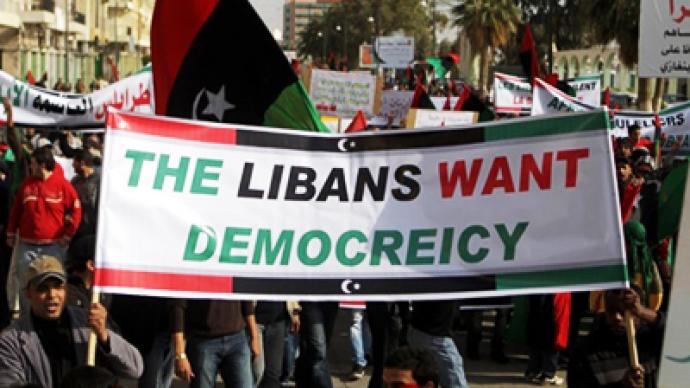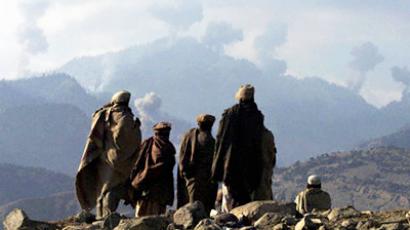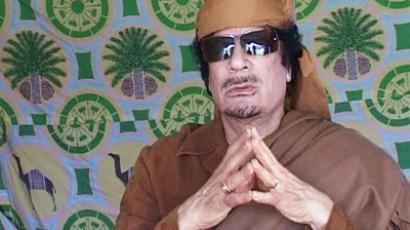Why Libyan uprising is not “people toppling dictator”

In the wave of political change in the Arab world, Libya clearly stands apart. Unlike his counterparts in Egypt or Bahrain, Muammar Gaddafi’s power does not seem to be slipping out of his hands, and there’s a reason for it.
Gaddafi’s resilience looks really strange, when you start considering it. His domestic opposition is armed with machine guns, not stones and Molotov cocktails. Even after a period of thaw, his international reputation is still on a par with Kim Jong-il – with all the airliner bombings, killing of police officers in St. James’ Square and a WMD program in his bag. Now he even has an international military force in his backyard, which without doubt could take control of Libya in a matter of days, if such a decision was made.With such pressure, any dictator would have been dethroned – if not by his own will, then with the friendly help of cautious subordinates. Yet that’s exactly what has not happened. Moreover, noticeably missing in reports from the country are the expected mass defection of government officials, troops and security forces to the opposition, and those voiced often turn out to be false, like that of Gaddafi’s daughter Ayesha allegedly attempting to flee to Malta.The plain fact is that Colonel Gaddafi has the support of both the public and his own government. This certainly doesn’t make him “the good guy” in the story, but it casts a huge shadow on the whole “oppressed people gather to oust the hated dictator” scenario.One has to remember that Libyan society is traditional and fundamentally fractionalized. Being in power in Libya is a balancing act between age-long blood feuds, traditions that prevail over rational thinking, the vital necessity to at least appear too strong to be defied, and a bunch of sons who are not eager to wait long before replacing you. All this is aggravated by the “oil pie” (of which everyone wants a bigger slice) and a small army of youths who are unlikely to find a job in a country which mostly consists of desert.Gaddafi’s strategy involves hefty social benefits, mass education and a great degree of local self-governance within communities (his latest step to hand out arms to all civilians is actually a development of the ongoing situation, in which a major part of the army is in essence a well-armed militia). His supporters apparently believe that those benefits outweigh drawbacks like the public execution of political opponents or funding of international terrorism.The bad thing about the position of a dictator is that as soon as you seem to have lost your grip, someone will try and replace you. And this is what happened in Libya in February. The stronghold of rebels is the region of Cyrenaica, dominated by the conservative religious order Senussi, with strong ties to Libyan Bedouins. They have never been fans of Gaddafi, with is natural once you take into account that he overthrew King Idris, who was also a hereditary leader of Senussi and emir of Cyrenaica. But for 40 years he managed to hold them in check through violence, bribes and intrigues.Assuming that those people’s only desire is to live in a democratic state with an elected president would be highly optimistic. Assuming that they want a bigger share of the oil which happens to be in their territory is much more realistic. Believing that they’ll keep free schools and hospitals on the list of their priorities – well, that’s wishful thinking. In fact, their inability to organize themselves and the consequent general retreat from Gaddafi’s loyal troops is a good indication of what they would do if they are in power.The biggest mystery is why on earth the international community would send a fleet to Libya to support one faction in an ordinary civil war. Is it so Sarkozy can score political points for being a tough guy ahead of the presidential election? Is it so Berlusconi can draw media attention away from his sex scandal? Is it so Obama can keep up with the tradition that each US president start a war? Judging from how slow the action is unfolding there, the people in charge don’t seem to have the answer themselves.
Aleksandre Antonov, RT














